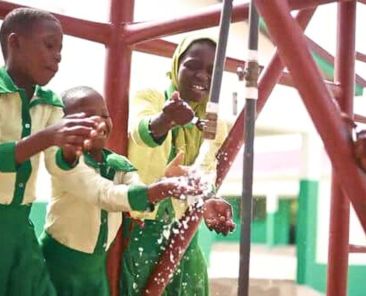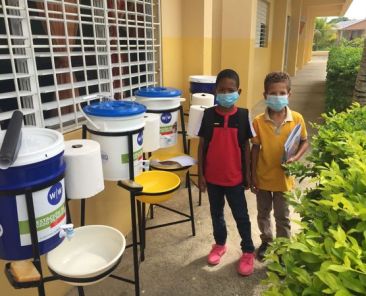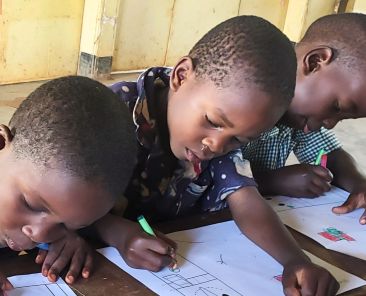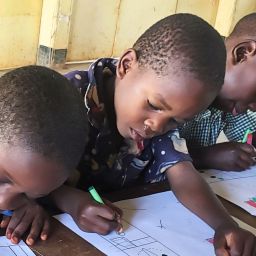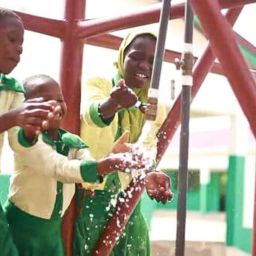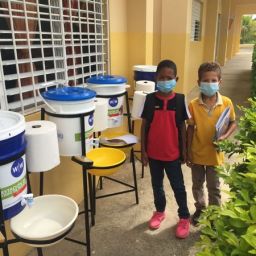January 24th is International Education Day, a holiday dedicated to promoting equal education access around the world and celebrating the people working for universal education access.
Currently, there are more than 250 million children and adolescents out of school. For these young people, the loss of education represents the loss of opportunities – to develop necessary skills, determine their future, and break the cycle of poverty in their families.

Across the developing world, multiple factors keep children out of school. For many children in water-stressed communities, however, the main barrier to finishing their education is a lack of safe water access at school and at home.
Children, especially girls, frequently shoulder the burden of collecting water for their families. In areas where water is scarce, this task can take hours out of every day, causing kids to be absent and miss vital lessons at school. Meanwhile, lack of running water in schools leaves children and teachers alike more vulnerable to the spread of diseases, endangering young people’s health and causing them to fall behind in their education.
H2O4ALL is dedicated to helping the next generation in our client communities build a brighter future for themselves and their families. To this end, it is vital to break down barriers to education wherever we find them. By implementing safe water systems in schools, we ensure that children in water-stressed communities can stay in school and reach their full potential.
January 24th is International Education Day, a holiday dedicated to promoting equal education access around the world and celebrating the people working for universal education access.
H2O4ALL began working in Tsopoli Village, Ghana, in 2017 when we partnered with the Givers’ Care Foundation to implement a safe water system at Someh Rahma School. At the time, Tsopoli – a small village of around 500 people in Ghana’s Greater Accra region – had no safe water source. Most Tsopoli residents relied on rainwater collection or unprotected lakes for water. Furthermore, these sources were often contaminated.
For teachers and students, staying safe during the pandemic was difficult enough without water stress – but in communities where safe water access was scarce, protective hygiene was exponentially more difficult. For our partner communities in the Dominican Republic, H2O4ALL’s Clean Hands Initiative made a world of difference when it came to keeping kids and teachers safe at school.
As we continue to seek effective ways to make positive change in our communities, we’ve begun pairing water projects at schools with food sustainability projects to improve children’s nutrition.
Our first project at Tom and Margaret Education Centre in Mawotto Village, Uganda now has a farm that includes bananas, cassava, corn, beans, groundnuts, and fruit trees, providing abundant and healthy food to Mawotto’s children.


